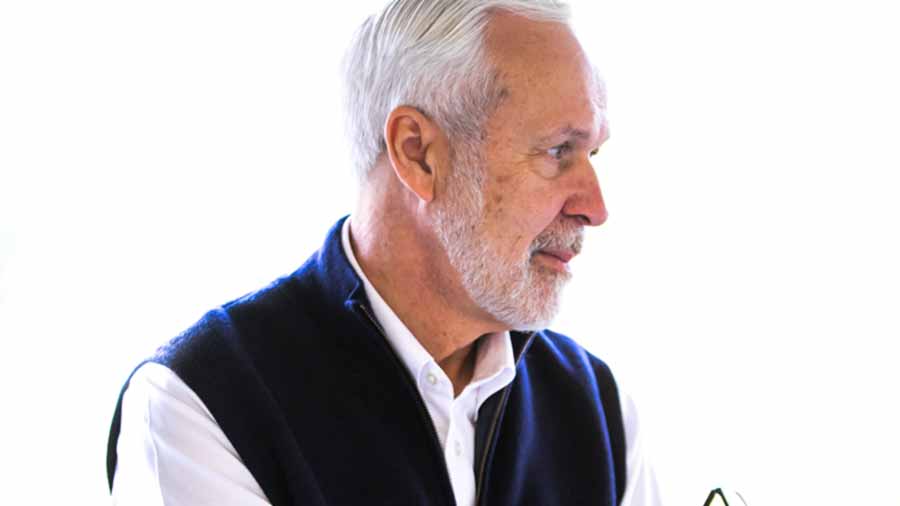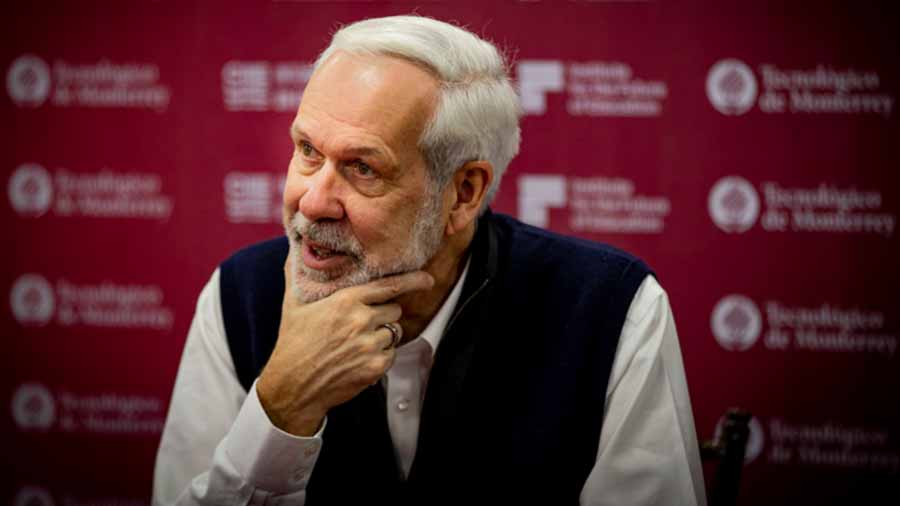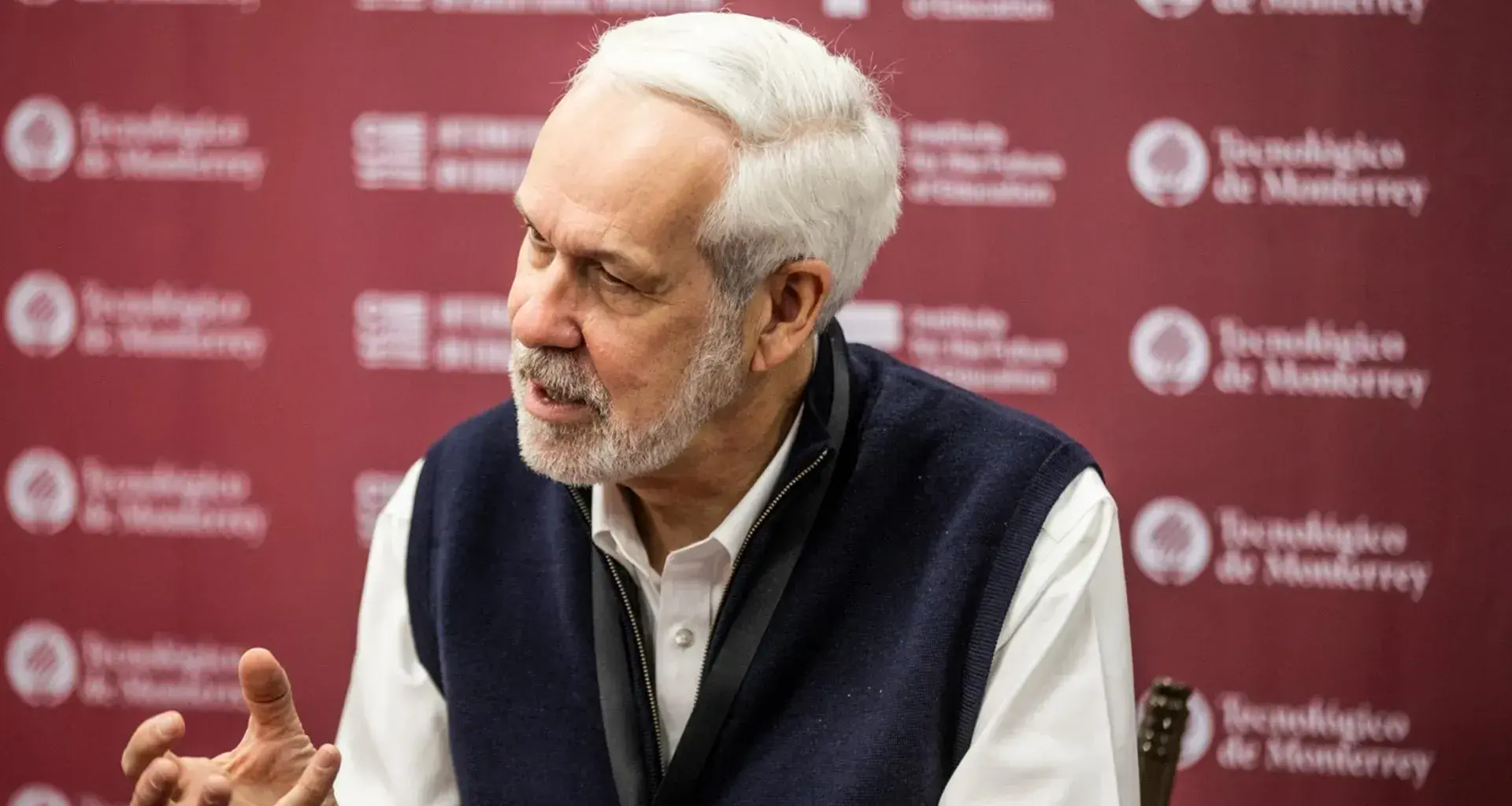How can you ensure that young people, regardless of where they’re from or their social status, can strive for a better future?
According to Paul LeBlanc, who’s considered one of America’s leading educational innovators, higher education institutions should create ecosystems that allow their students to excel on their own terms.
“The nature of work is changing across the board - journalism, music, or technology, for example - and we have to look at what needs to be done for universities to equip students with the necessary skills for their career success,” said LeBlanc.
As part of the Tec’s International Conference on Educational Innovation (CIIE for its initials in Spanish), the President of Southern New Hampshire University shared aspects that will enable students to be placed at the center of education.

1. Bridge gaps in access to technology
LeBlanc points out that the pandemic has accelerated changes in education, transforming much of it from inside the classroom to a hybrid or online format, occasionally creating gaps in access for some students.
“Access to tablets, computers, that ability to connect is important.
“During the pandemic, there were students who were connected at 2 or 3 o’clock in the morning. That was the only time it was quiet in their apartment, and there was only one computer they could use,” says LeBlanc.
Actions the teacher says should be encouraged include initiatives to guarantee access or even projects to acquire resources for students without computers.
2. Give young people flexibility
“Online education can give people more flexibility. Some of them even have to work to support their families,” said LeBlanc.
Given the increase in distance learning, Paul says that online education can be an opportunity to those who can’t study in a face-to-face format. However, it does bring other learning challenges.
“We have to make sure teachers understand that (online classes) are different to teaching inside the classroom,” says LeBlanc, adding that teachers should redesign some of their models to ensure learning.
3. Think about the person and their emotional needs
LeBlanc says that Mexico is experiencing a mental health crisis, which is why he advises teachers to contemplate this area in the education offered to students.
“In a call with a student, your first question shouldn’t be ‘How is your assignment going?’ or ‘How are your studies coming along?’ but rather: ‘How are you?’ How is your family? Are you okay?
“Many students aren’t okay, and you can help them solve that problem first,” LeBlanc said.
He added that it’s important to know about the resources available to send students to professionals if they are needed.

4. Evolve the way of teaching
LeBlanc notes that teachers must understand the way online teaching and learning works.
“You can’t just do the same thing you did in the classroom now that you’re online. It’s a different world.
“In each industry, we have to re-learn, and education is no exception,” he says.
He also invited teachers to choose to leave the comfort zone of their classes and way of teaching and instead choose innovation.
5. Reach out to colleagues who are liked by their students
LeBlanc suggests reaching out to colleagues who are already asking interesting questions in the classroom and who are appreciated by their students.
“Take the time to get to know your colleagues and what they’re doing. Observing them, sitting in their class to see what they’re doing is one of the best ways of learning,” he says.
Although some universities have learning centers and processes for teachers, LeBlanc believes the best way to learn is through informal learning.
“We normally learn by watching. We have many studies showing that students prefer to go ask a classmate rather than a teacher. I think it’s better to learn in an informal way,” he concluded.

The eighth annual CIIE from Tec de Monterrey
This is the eighth International Congress on Educational Innovation from Tec de Monterrey.
The event takes place annually. This time, it was held in a hybrid way for 4 days from December 13 to 16, 2021.
“(The CIIE) has established itself as an outstanding space for the meeting of professionals from different parts of the world. We involve everyone who has the co-responsibility of creating the future of education,” said José Escamilla, director of the Institute for the Future of Education at the Tec.
This year, more than 5,000 attendees participated with the opportunity to listen to discussions and keynotes on education.
YOU’LL DEFINITELY ALSO WANT TO READ:





